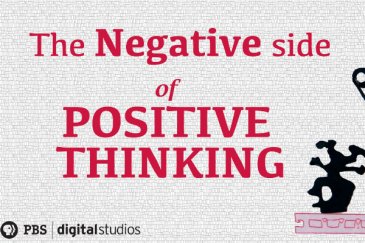Inspirational quotes and self-help books aren't always right when they tell you to think positive, as the new episode of Braincraft explains.
The internet loves to tell you to think positively - "She believed she could, so she did!" and similar positive affirmations are plastered all over Instagram and Facebook walls daily.
But despite the hype, positive thinking may not be that great for everyone, studies suggest. In fact, research has shown that visualising success can actually cause people to fail, as Vanessa Hill explains in the latest episode of Braincraft.
In one study, participants with high and low self esteem were told to repeat the phrase "I'm a loveable person". Researchers then measured the mood and feelings of the volunteers, and found that those with low self esteem actually felt worse about themselves after repeating all the positive affirmations, and those with high self esteem only felt marginally better.
In a follow-up study, those with low self esteem were asked to list negative self thoughts alongside positive self thoughts, and they ended up feeling better.
This is because of something known as latitudes of acceptance, Vanessa explains, which basically means that messages closer to our position or beliefs are more persuasive to us than those that aren't. And messages outside our latitude of acceptance, such as being loveable when you have low self esteem, are often powerfully rejected and just end up more strongly reinforcing what we already believe.
Other research has shown that thinking you're going to succeed, without thinking about how you'll get there, can decrease motivation and drain our ambition. And those who visualise the coming week positively often feel less energised than those who picture it going negatively, and they also achieve less goals. But of course, we're all different, and we all respond in varying ways to positive visualisation.
Watch the latest episode of Braincraft above to find out more about how positive thinking can sometimes be bad for us.
And don't forget, while we're generally pretty upbeat here at ScienceAlert, the occasional negative thought can be motivational too.
